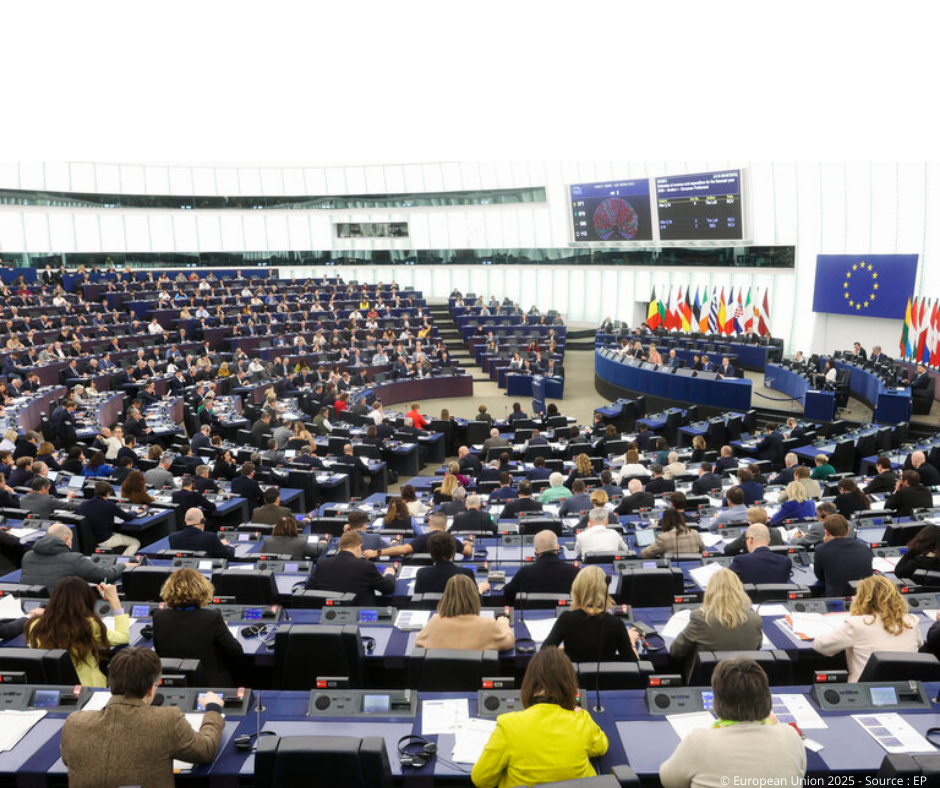
Reflecting a rapidly evolving policy and political context, where climate policies are increasingly relegated to the backseat, the EU’s 2040 climate target, setting a carbon emissions reduction objective compared to 1990 levels, has been delayed several times, first to March, and then to an unspecified date during the second quarter of the year. Meanwhile, on 3 April, the European Parliament approved the Omnibus Simplification package, loosening the Green Deal rules on due diligence and sustainability reporting requirements.
The European Commission, initially expected to present the 2040 emissions target on 26 February, had indicated plans for a 90% reduction by 2040, aiming for net-zero emissions by 2050, in preliminary discussions during the last mandate. The ambitious objective had received the support of eleven EU member states, in an open letter calling for the EU to lead by example, but still notably fell short of the EU’s Scientific Advisory Board on Climate Change's recommendation of a 95% reduction and failed to call for a full phase-out of fossil fuels.
In the past year, discussions have stalled, and no official proposition has been made, meaning that the formal legislative process involving member states and the European Parliament cannot start. This is partly due to the political situation in Poland, which currently holds the rotating presidency of the Council of the EU, and which had hoped to delay the start of the debates on the matter until after its presidential election in May.
Recently, EU Climate Commissioner Wopke Hoekstra announced potential “flexibilities” in reaching the 90% goal, according to anonymous Commission sources, such as allowing member states to decarbonise more slowly and less progressively in a non-linear path, with the bulk of the cuts left closer to the end of the timeframe. The Commission is also considering allowing the inclusion of carbon credits bought on new international markets, meaning that a member state funding a project lowering emissions in a third country could count towards lowering the member state’s emissions: this would be an important departure from the current calculations, which are strictly domestic. Additionally, the Commission is also reported to consider giving more importance to negative emissions, achieved through carbon capture, and facilitating more sectoral flexibility, which would allow sectors to compensate for one another.
At the member state level, Italy is currently advocating to reduce the target to 80 or 85%, while the Czech Republic, Slovakia, and Hungary have also expressed doubts about the target. Germany’s position, considered pivotal, is still unknown following the parliamentary election that took place in February. The target should also play an important role from an international standpoint. Indeed, the chosen trajectory at the EU level is intertwined with member states’ nationally determined contributions (NDCs), plans detailing how to curb global warming and reduce emissions, requested by the United Nations (UN), ahead of COP30.
In another blow to climate ambitions, the European Parliament voted, with 531 votes in favour, to approve the “Omnibus I” simplification package, effectively postponing the entry into force of the Corporate Sustainability Due Diligence Directive (CSDDD) and the Corporate Sustainability Reporting Directive (CSRD), a few days after the Council’s approval. Member states will now have one extra year to transpose the CSDDD into national law, until July 2027, and two to three extra years for the CSRD, depending on the size of the company.
In an effort to cut red tape and enhance the competitiveness of EU businesses, the adoption of the first Omnibus package, introduced by the Commission on 26 February, was notably fast-tracked with the Parliament agreeing to handle it as an “urgent procedure.” Observers believe that other key Green Deal files could be next, as part of the fourth Omnibus Simplification package to be presented on 21 May, given that conservative politicians and industry associations have criticised the Energy Efficiency Directive (EED), amongst other policies, for being redundant and burdensome.